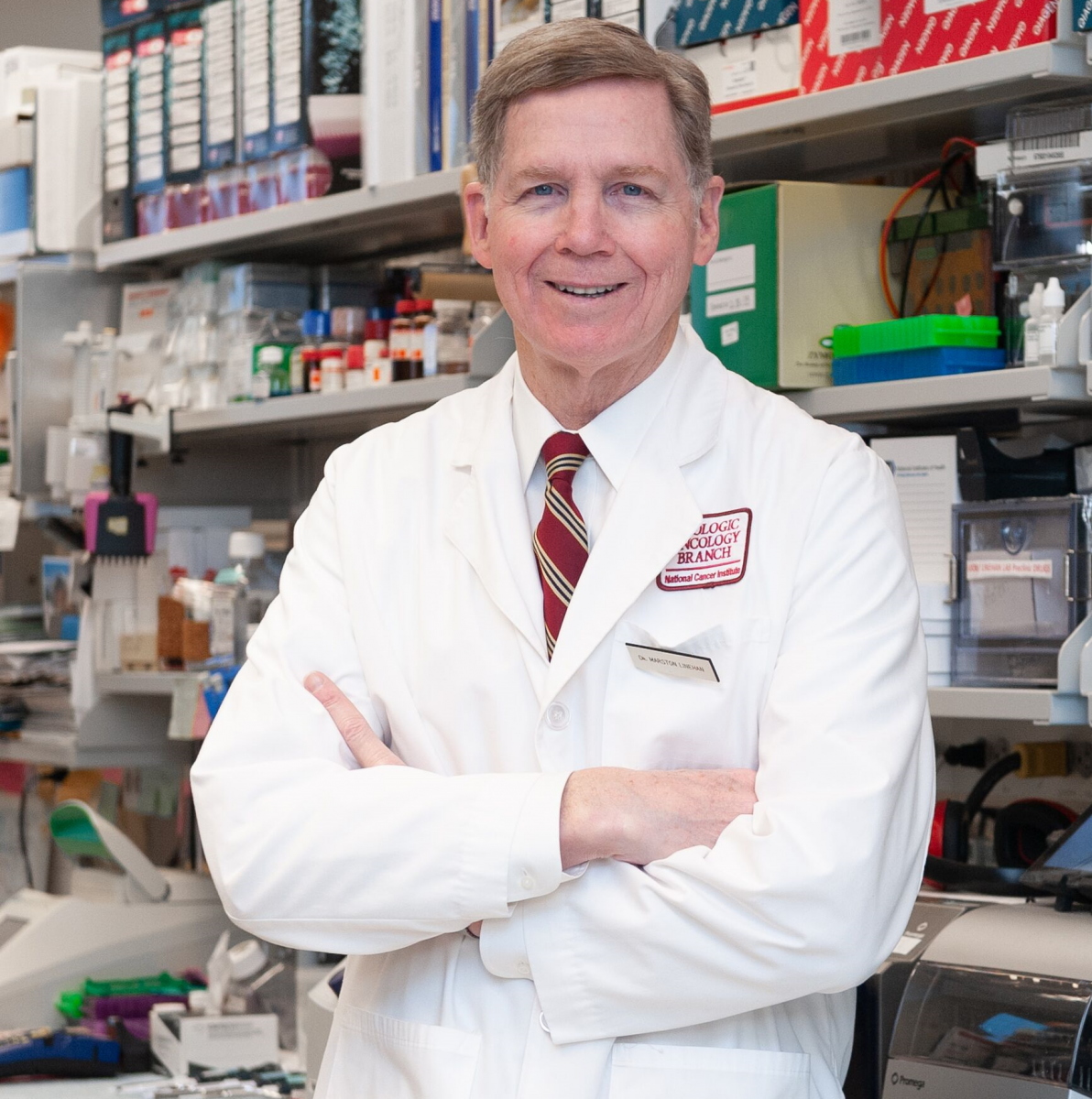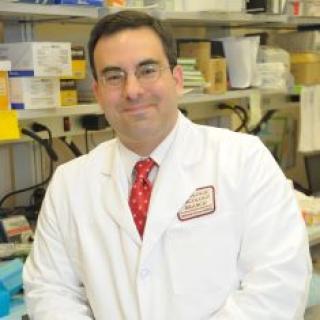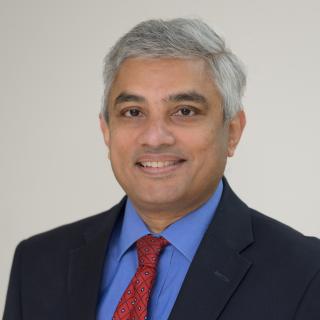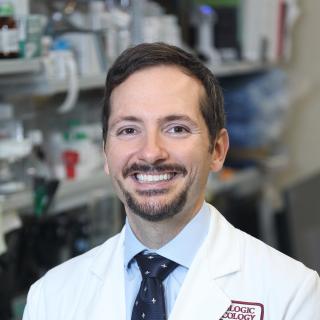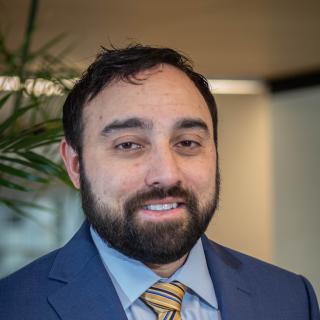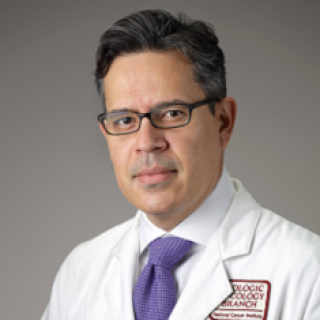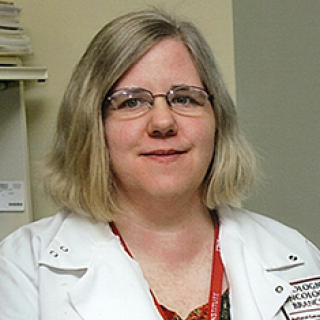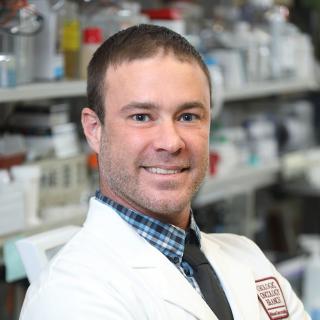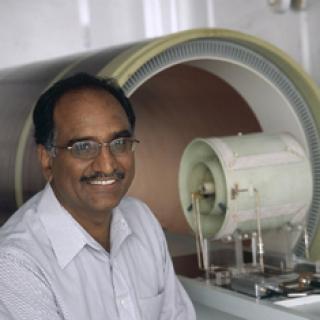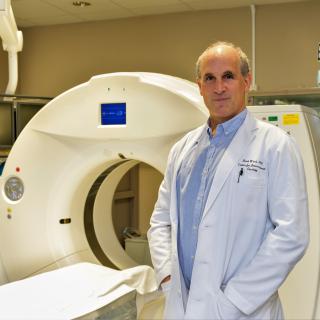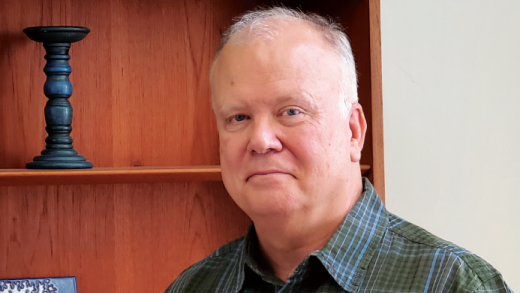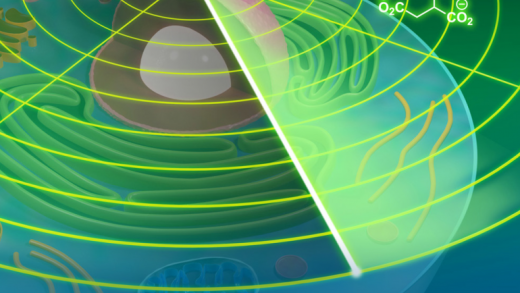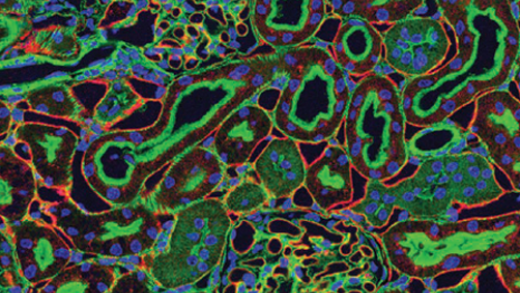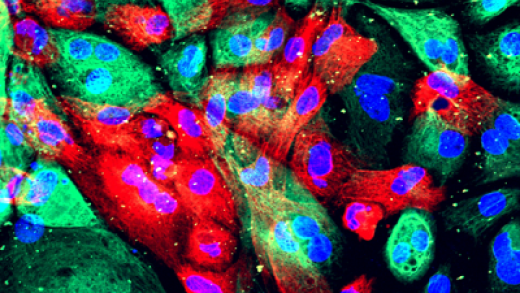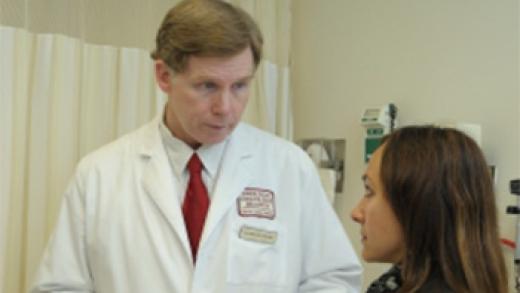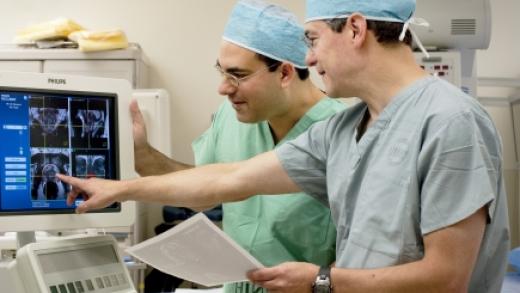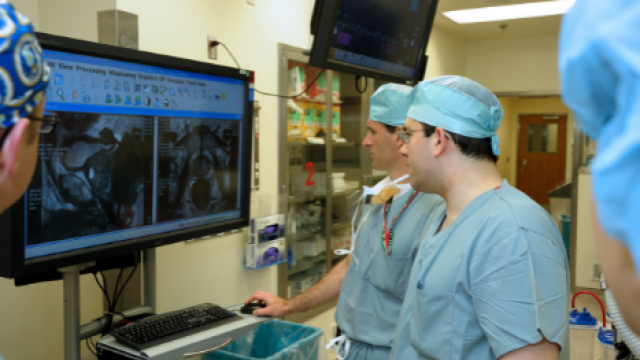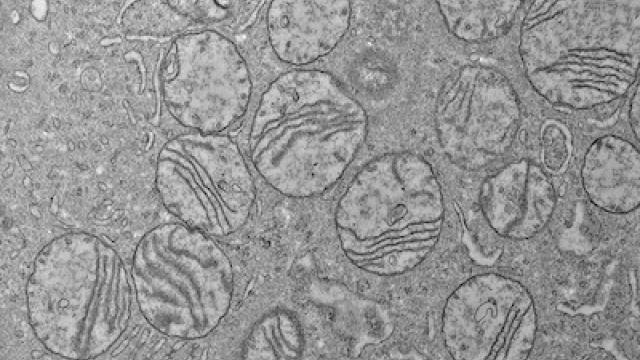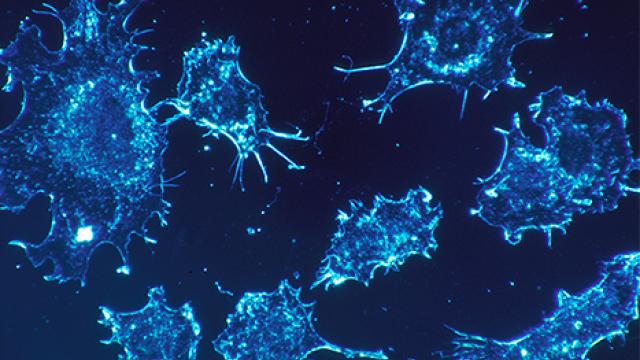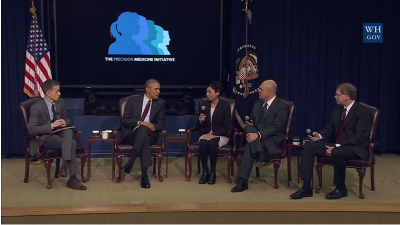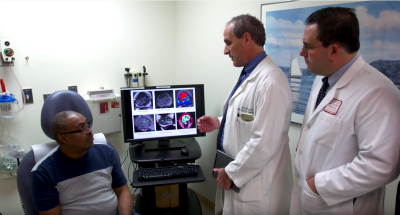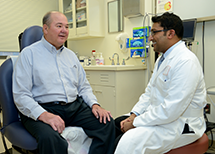Urologic Oncology Branch
Information for Patients
Learn more about our clinical trials and the highly specialized care teams who lead them.
Urologic Oncology Branch
About
Chief, Urologic Oncology Branch
The Urologic Oncology Branch conducts clinical and basic research designed to develop better methods for detecting, preventing, and treating patients with kidney cancer, prostate cancer and bladder cancer. We evaluate and manage patients with non-inherited as well as inherited forms of kidney cancer. The Branch also has an expanding prostate cancer program. Patients with known or suspected localized and locally advanced prostate cancer undergo advanced MRI imaging followed by fusion image-guided biopsy to diagnose and characterize the cancer. They may then be managed with robotic surgery or be followed with active surveillance and intermittent imaging. In addition, we have a growing program in genomics and targeted therapy for bladder cancer patients, including therapy that targets EGFR, FGFR3 and other mutated bladder cancer genes.
Clinical Trials
PI & Key Staff
Principal Investigators
Key Staff
Adjunct Investigators
Job Vacancies
We have no open positions in our group at this time, please check back later.
To see all available positions at CCR, take a look at our Careers page. You can also subscribe to receive CCR's latest job and training opportunities in your inbox.
News
News from the Urologic Oncology Branch
For the most up-to-date news, follow us on Twitter
CCR researchers show testing with combined biopsy method improves prostate cancer diagnosis
NCI Press Release
Mar 4, 2020
A method of testing for prostate cancer developed at NCI leads to more accurate diagnosis and prediction of the course of the disease, according to a large study. Read more...
Dr. Linehan discusses kidney cancer breakthroughs with the Federal News Network podcast
Sept 30, 2019
In this Federal News Network podcast, Dr. Linehan discussed how kidney cancer is not a single disease but rather a number of different cancers that all happen to occur in the kidney. Learn more...
Marston Linehan receives 2019 Urology Care Foundation Distinguished Mentor Award
May 7, 2019
Marston Linehan, M.D., Branch Chief, has received the 2019 Urology Care Foundation Distinguished Mentor Award. The award recognizes Dr. Linehan's outstanding track record of fostering the next generation of urologic researchers by providing excellent training and guidance to early-career investigators.
Dr. Linehan featured in "The Code" video series from STAT and Retro Report
Apr 9, 2018
"Finding the Code: The Race to Sequence the Human Genome and What it Means" is the first in a three-part series from STAT and Retro Report investigating the roots of today's most promising genetic technologies. Marston Linehan, M.D., is featured for his work on the Human Genome Project. Learn more...
Dr. Linehan receives the 2016 Ramon Guiteras Award
May 9, 2016
The American Urological Association selected W. Marston Linehan, M.D., to be the recipient of the 2016 Ramon Guiteras Award for identification of genes associated with different types of kidney cancer and developing new strategies for their management. The Ramon Guiteras Award is the Association's most prestigious honor and is presented annually for outstanding contributions to art and science of urology. Learn more...
Dr. Linehan speaks at White House Precision Medicine Initiative Summit
Feb 25, 2016
On the one-year anniversary of the launch of the Precision Medicine Initiative, Dr. Linehan participated in a panel discussion moderated by Dr. James Hamblin of The Atlantic on the importance of this initiative. Learn more...
JAMA Report: MR/Ultrasound Fusion Biopsy for Prostate Cancer
Jan 27, 2015
In this video report, Peter A. Pinto, M.D., talks about MR/ultrasound fusion biopsy for prostate cancer. Learn more...
Science
Our Research
Molecular Genetic Analysis of Genetic Events Associated With Initiation and Progression of Urologic Malignancies. Dr. Linehan and his team identified the genes for the common forms of kidney cancer and described the pathways of these kidney cancer genes. Recent studies targeting the metabolic basis of kidney cancer have resulted in the regression of metastatic cancer in patients with type 1 and type 2 papillary kidney cancer.
Developing Novel Diagnostic and Treatment Modalities for Localized and Locally Advanced Prostate Cancer. Dr. Pinto’s research centers on the investigation of multiparametric MRI (mpMRI) in prostate cancer to improve diagnosis with mpMRI whole-mount pathology correlation and creation of a tumor-directed biopsy device; development of image-guided focal prostate cancer therapy; and evaluation of immunotherapy, molecularly targeted therapy or other pharmacotherapies in the management of localized or locally advanced prostate cancer.
Investigating Molecularly Targeted Therapeutics for Kidney Cancer. Dr. Srinivasan is developing treatment strategies and clinical trials for patients with both hereditary and non-hereditary forms of kidney cancer. Currently, his team is investigating a variety of newer 'targeted' agents in clear cell and papillary kidney cancer, as well as hereditary kidney cancer syndromes such as von Hippel-Lindau, hereditary leiomyomatosis and renal cell cancer (RCC) and hereditary papillary renal cell cancer (HPRC).
Team
Clinical Programs Overview
Our physicians study families who have rare inherited conditions which predispose to development of kidney cancer. We also see patients without a positive family history who are suspected to have one of these rare genetic conditions. It is the study of these patients and their family members that allow the discovery of new genetic conditions, the responsible genes and new understanding that is the foundation of this Branch and has allowed the successes of the Branch. The clinical team is comprised of one genetic counselor/ protocol manager, nurse practitioners, clinical research nurses and patient care coordinators. Several populations of patients are evaluated for sporadic renal and bladder cancer, sporadic prostate cancer, familial kidney cancer, and interventional clinical trials.
Molecular Therapeutics
Molecular Therapeutics translates discoveries at the genetic, molecular and cellular levels into improvements in the diagnosis and treatment of genitourinary (GU) cancers by defining genetically identified oncogenic signaling pathways, identifying new therapeutic targets and strategies, and conducting preclinical and clinical drug and biomarker development. We believe that successful therapeutic strategies to treat GU cancers will require understanding how cancer-associated signaling defects affect cell and organ function, as well as the development of appropriate reagents, bioassays, and cell and animal models for pathway analysis, drug design and testing.
Our Physicians
W. Marston Linehan, M.D., Peter A. Pinto, M.D., Ramaprasad Srinivasan, M.D., Ph.D., Mark W. Ball, M.D., Vladimir Valera Romero, M.D., Ph.D., Gabriela Bravo Montenegro, M.D., Sandeep Gurram, M.D.
Our Physician Assistants and Nurse Practitioners
Rebecca Dolan, N.P., Anju Johnson, CRNP, Seong Ko, CRNP, AGPCNP-C, Lisa Mac, PA-C, MPH, Beth Ryan, P.A.-C, Nana Yaqub-Ogun, P.A., Maria Zumer, PA-C
Our Patient Care Coordinators
Mabel Cruz, Hyun Nunez, Luis Nunez, Patricia Vanags, Yvonne Wall
Our Research and Registered Nurses
Wanda Bell-Farrell, MS, R.N., Sonia Bellfield, R.N., Jill Harper M.S., Ph.D., N.R., Debbie Nielsen, B.S.N., CCRP, Lidenys O’Brien, R.N.
Our Urologic Oncology Fellows
Ruben Blachman Braun, M.D., Charles Hesswani, M.D., Christopher Koller, M.D., Braden Millan, M.D., Daniel Nethala, M.D., Jaskirat Saini, M.D.
Our Medical Research Students
Milan Patel
Our Programmer, Data Managers, and Imaging Specialist
Kristin Choo, Donna Drake, Rabindra Gautam
Our Tissue Processing Facility
Cathy Vocke, Ph.D., Julian Custer
Our Administrative Staff
Rose Jochum, Ana Levcovitz, Margot Michels, Sophia Fajardo Michels, Malcolm Sawyer
Training
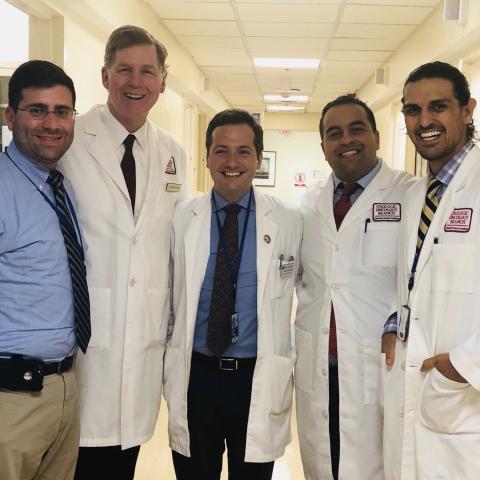
Training opportunities are available in both clinical and basic research areas within the Branch.
Clinical
- Urologic Oncology Fellowship (2 to 3-year SUO fellowship applicants)
- NIH Medical Research Scholars Program (1-year program for medical students)
- NIH Clinical Electives Program: Urologic Oncology (3rd & 4th year medical students, short-term)
Research
- Postdoctoral Research Training Program in Urologic Oncology
For Students
- Training Opportunities for Students
- Predoctoral Fellowships
- NIH Graduate Student Partnership Program
- NIH Postbaccalaureate Program
- NIH Summer Internship Program in Biomedical Research

